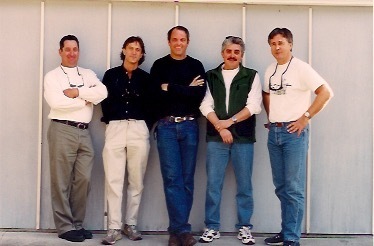Long before the legalization, deep-rooted history and influence has shaped the cannabis culture we all know today.
For canna-curious and stoners alike, there is one particular phrase, or number specifically, that indicates an entire cultural understanding of cannabis.
April 20th, or what many refer to as “4/20” has notoriously become the unofficial, official cannabis holiday. It’s not just this mid-spring calendar date that has heavily influenced society – the number and term itself have been culturally used throughout the years.
However, despite how the popularity of this term and holiday has grown over time, the history of the 420 origin is still a bit hazy. Today, we’re here to set the record straight on the history of 4/20 and how it has impacted cannabis culture!
A Hazy History
Anyone involved in cannabis culture understands the strong connection of the 420 term to cannabis. It’s a part of cannabis terminology that has been incorporated into the music, literature, movies, and other pop culture references.
With the growing influence this term has had on cannabis and culture, there are still many debates around the exact origin of this cannabis holiday.
Some cannabis myths suggested that “420” was a code used by police officers during the war on drugs and pot prohibition. Others suggest the correlation was first inspired by a Bob Dylan song when he sings, “Everybody must get stoned,” in the hit Rainy Day Women No. 12 & 35 (because 12 multiplied by 35 equals 420).
Of all the strange and detailed possibilities that originated between cannabis and 420, one story started it all.
A Weird Scavenger Hunt & A Friend Group Named The Waldos
It all started in 1971 with a group of friends who called themselves “the Waldos.” This group of friends was known for hanging around the wall outside their San Rafael high school each afternoon. It was during one post-school smoke sesh that they first heard about a mysterious plant hidden in the forest nearby.
They had learned about a Coast Guard member in the California region who had planted a cannabis plant nearby that he could no longer tend. Leaving a map behind for the group of teens, they immediately set off to find this treasured crop.
This scavenger hunt of some sort then became a regular part of the Waldo’s after school activity – they would meet up each day after their extracurricular practices. The time they would meet? 4:20 pm.
They all would pile into the car, take a few puffs, and undertake the exploration of this mysterious cannabis plant.
As the hunt went on, the Waldos would remind each other throughout the school day about the meetup. They would use the code “4:20-Louis,” which specifies when and where to meet.

Even though they never found the plant they were searching for, many memorable times and adventures were shared along the way. Little did this group of friends know it would gradually progress into a worldwide cultural phenomenon.
The afternoon smoke sessions ritualized by this group of friends were passed along to one of the largest groups in the ‘70s rock-n-roll, marijuana, and anti-war era – the Grateful Dead.
One of the Waldos members, Dave Reddix, landed a music gig in the early ‘70s with Grateful Dead bass player Phil Lesh. Through touring and working together, Reddix noticed the 420 ritual quickly influencing and connecting those around him.
From there, Grateful Dead fans would meet before shows at 4:20 for a group smoke. By late 1990, a group of Oakland fans handed out flyers for a community smoke gathering to ‘smoke 420 on 4/20 at 4:20.’

From 4:20 to 4/20
For decades, April 20th was already known as a day for the community around the world to praise the plant and break the stigma.
Through the power of community, friendship, and the plant, the term rapidly established and defined an entire cannabis culture.
- Friends would join on this specific day and smoke a joint in harmony. Events, parades, and rallies would help promote advocacy and awareness for the plant.
- Pop culture media artists and musicians would rap or sing about 420 in their lyrics.
- A series of movies and iconic television shows created worlds of ‘420 stoner culture.’
- When California passed its Compassionate Care Act for medical marijuana patients in 2003, it was deemed Proposition 215 SB 420.
Today, legal cannabis states around the country honor this day through a wide variety of events, promotions, and deals!
In Colorado, the 420 Mile High Festival in Denver is a huge celebration with artists, vendors, and entertainers where the community can gather for the holiday.
The 420 holiday has also become the biggest day in sales for retailers, dispensaries, and the industry as a whole. Last year, the 420-day projected $52 million in total sales, with average revenue per location increasing by 8%.
Additionally, last year’s sales showed 71% of all 420 transactions included a dispensary promotion or discount.

Celebrating the 420 Season with RootsRX
In Colorado alone, the 420 celebrations and the entire cannabis culture are stronger than ever. With access to a wide source of Colorado recreational dispensaries and innovative cannabis products, there are plenty of ways to celebrate 420 any day.
RootsRx is excited to ring in another 420 holiday with some of the hottest dispensary deals and latest products for the community. Come by either of our six recreational dispensary locations across Colorado and let us know how you’ll be spending the holiday and what products we can offer for the ultimate celebration!
Check out a detailed breakdown of our 420 deals among each of our Colorado dispensary locations.


